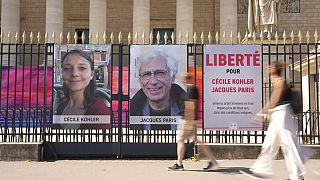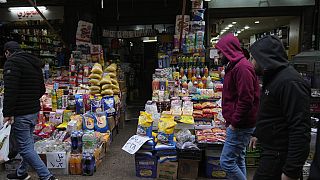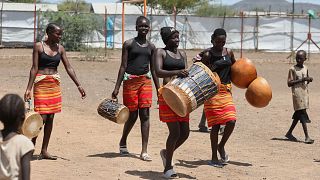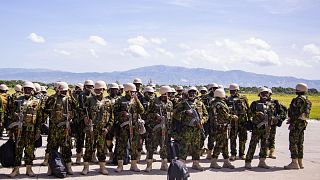Kenya
Kenyan police were involved in the killing of 12 people, including two children, during violent opposition demonstrations in March, two rights groups said on Wednesday, denouncing a lack of accountability.
Extra-judicial killings are rife in Kenya, and justice is rare with few examples of police being held to account.
Human Rights Watch (HRW) and Amnesty International said they documented 12 deaths during three days of anti-government protests called by veteran opposition leader Raila Odinga over a cost-of-living crisis and last year's disputed election.
They said in a joint statement they had "corroborated 12 killings in interviews with family members and witnesses."
"While some of the victims were involved in the protest, most of the 12... were bystanders, passersby, or people in their homes and business premises."
Two children, including a four-month-old baby, also died from health complications after police fired tear gas into residential homes in Kibera, a densely packed slum in Nairobi, the NGOs added.
According to government figures, three people died during the March unrest, including a policeman.
Kenya's police force is often accused by rights groups of using excessive force and carrying out unlawful killings, especially in poor neighbourhoods.
Speaking at a press conference in Nairobi, HRW researcher Nyagoah Tut Pur denounced the "complete and utter impunity" enjoyed by the Kenyan security forces.
Meanwhile Irungu Houghton, Amnesty's executive director in Kenya, called for "zero tolerance" towards police officers guilty of abuse and violence.
Four Kenyan police officers from a notorious unit linked to extrajudicial killings and other crimes were charged in October over the disappearance of three men whose bodies have never been found.
The officers were part of the feared Special Service Unit (SSU) that was shut down by President William Ruto in October over accusations of involvement in a spate of abuses, abductions and violent murders.
Prosecutors also announced later that month that they would charge police with crimes against humanity over a deadly crackdown on post-election protests in 2017, a landmark decision hailed by UN rights chief Volker Turk.
The charges cover rape, murder and torture and include the case of a six-month-old baby girl whose death became a symbol of police brutality during the bloody election aftermath.
Kenya's parliament established the International Police Oversight Authority (IPOA) in 2011 to provide civilian scrutiny of a powerful institution also reputed to be among the country's most corrupt.
Only a handful of officers have been convicted as a result of IPOA investigations, even though the watchdog has examined more than 6,000 cases of alleged police misconduct, according to data covering the period from its inception to June 2020.
Activists largely defend the IPOA's record, saying police often frustrate inquiries by refusing to cooperate.
According to Missing Voices, a campaign group focused on extrajudicial killings in Kenya, there have been at least 1,264 deaths at the hands of police since it began collecting data in 2017.













00:28
Nairobi hawker shot at close range by police declared brain dead
01:07
Kenya prepares for first anniversary of Finance Bill protests
01:39
Family of Kenyan man shot at close range by police demands accountability
01:37
Kenyan police officer arrested after protests over blogger's death in custody
01:37
Outrage in Kenya as autopsy reveals a blogger was strangled in police custody
01:20
Amnesty International accuses DR Congo's M23 rebels of possible war crimes